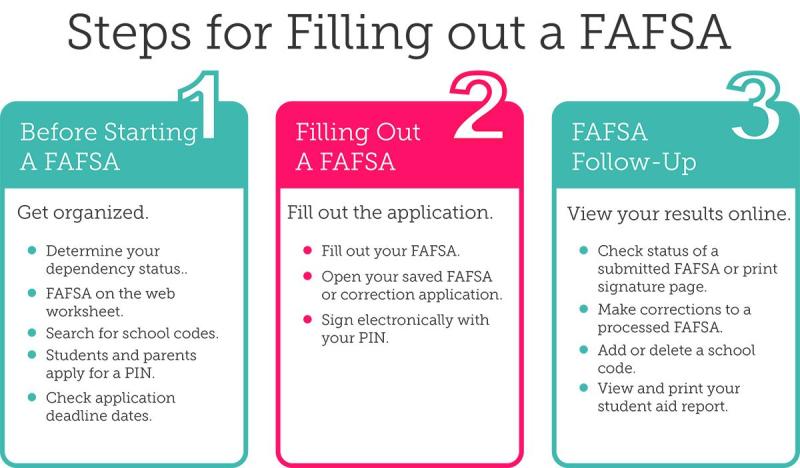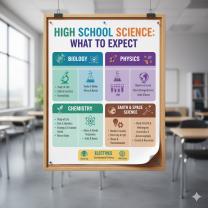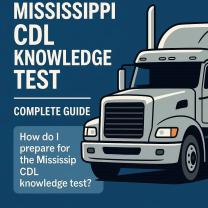What information do I need for FAFSA?
To complete the Free Application for Federal Student Aid (FAFSA), you'll need the following information and documents. This list assumes you are a U.S. citizen or an eligible non-citizen:
Personal Information:
- Your Social Security Number (SSN) or Alien Registration Number (if applicable).
- Your date of birth.
- Your legal name as it appears on official documents.
Dependency Status:
- Information about your current marital status and, if applicable, your parents' marital status. This determines whether you are considered a dependent or independent student.
Financial Information:
- Federal Income Tax Returns: You and your parents (if you're a dependent student) will need your tax returns from the previous year. The IRS Data Retrieval Tool can simplify this process.
- W-2 Forms or other records of income earned.
- Records of untaxed income, such as child support, interest income, and veterans non-education benefits.
- Bank statements.
- Investment information.
FSA ID:
- Create a Federal Student Aid (FSA) ID for yourself and one parent (if applicable). This ID serves as your electronic signature and allows you to access and sign the FAFSA online.
List of Schools:
- You will need to list the schools to which you want your FAFSA information sent.
Selective Service Registration (for males aged 18 to 25):
- If you're a male between the ages of 18 and 25, you must be registered with the Selective Service to be eligible for federal student aid.
Additional Information:
- If applicable, information about your parents' educational background (degree or certificate earned).
- Details about any federal student loans you may have taken out previously.
Remember to start the FAFSA early, and be aware of the application deadlines for your state and the colleges you're interested in attending. Completing the FAFSA is an annual process, so you'll need to submit a new application for each academic year you're seeking financial aid.
FAFSA Application: Gathering Documents, Completing the Form, and Meeting Deadlines
Applying for the Free Application for Federal Student Aid (FAFSA) is essential for accessing financial aid for college. To ensure a smooth and successful application process, follow these key steps:
1. Gathering Essential Documents:
Before you begin the FAFSA application, gather all required documents. This will significantly streamline the process and minimize errors. Here's a checklist of essential documents:
Student:
- Social Security Number (SSN)
- Driver's License Number (if available)
- Alien Registration Number (ARN) (if applicable)
- Prior-prior year Federal Tax Information (including W-2s, 1099s, etc.)
- Current bank statements
- Investment records (stocks, bonds, etc.)
- FSA ID (Federal Student Aid ID)
Parents (if dependent student):
- Social Security Numbers
- Prior-prior year Federal Tax Information
- Current bank statements
- Investment records
Additional resources:
- IRS Data Retrieval Tool: Simplifies tax information entry into the FAFSA.
- Federal Student Aid Website: Provides detailed information on required documents and helpful tips.
- College or Career School Website: May have specific requirements or deadlines.
Completing the FAFSA Form Accurately and Thoroughly:
Complete the FAFSA online at studentaid.gov. This is the fastest and most efficient way to submit your information. Here are some tips for accurate and thorough completion:
- Start early: Don't wait until the last minute to avoid rushed submissions.
- Answer all questions to the best of your knowledge.
- Double-check all information for accuracy before submitting.
- Save your work frequently to avoid losing data.
- Use the "Help" feature for guidance on specific questions.
- Be truthful and consistent in your responses.
Understanding FAFSA Deadlines and Submission Guidelines:
The FAFSA opens on October 1st each year for the following academic year. However, some deadlines are crucial to remember:
- Federal Deadline: June 30th of the following year.
- State and College Deadlines: May be earlier than the federal deadline.
- Priority Deadlines: Set by individual colleges for maximum financial aid consideration.
Submission Guidelines:
- Sign electronically with your FSA ID.
- Submit your application electronically for faster processing.
- Keep a copy of your submitted FAFSA for your records.
Additional Resources:
- FAFSA Help Center: Provides step-by-step instructions and answers to frequently asked questions.
- Federal Student Aid Estimated Family Contribution (EFC) Calculator: Helps estimate your financial aid eligibility.
- College Financial Aid Office: Provides personalized assistance and guidance.
By carefully gathering documents, completing the FAFSA accurately, and meeting deadlines, you can significantly increase your chances of receiving the financial aid you deserve for your educational journey. Remember, timely and accurate submission is crucial for maximizing your financial aid options.












